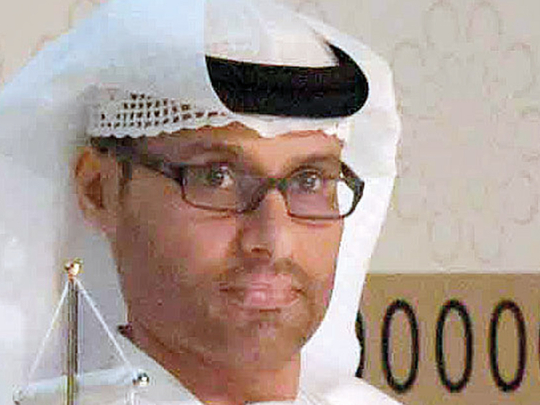
Abu Dhabi: Giving children easy access to the digital world comes with major risks, including brainwashing and incitement by extremists, said an official on the sidelines of the International Conference for the Criminlisation of Cyberterrorism (ICCCT) on Monday.
Speaking with Gulf News, Dr Mohammad Al Kuwaiti, Executive Director, National Electronic Security Authority, said that the government was working strongly to raise awareness with young children and their parents about cyber threats, and how best to avoid falling into trouble when they connect to the internet.
Al Kuwaiti cited the story of a 14-year-old teenager from Al Ain who fell prey to an online hacking group. The teen, an avid hacker who yearned to belong to a cause like most youngsters, was contacted by a hacking group and offered him the chance to join their network if he managed to accomplish a series of hacking challenges. The teenager managed to complete all tasks, including pulling information from a semi government entity and taking down one website, all the while unaware that his computer was being monitored by the group who had taken material from his computer to use as blackmail against him or his family in the future, as a way of coercing him to do what they wanted.
Al Kuwaiti said the teenager’s parents were completely unaware of their child’s actions, and that thanks to official intervention, the boy’s contact with the hacking group was severed.
“When it comes to children there are a lot of threats that they face online, such as blackmail, cyber bullying, or [extremists trying] to brainwash them. That is what we found in many cases that we investigated,” he said.
“[in response to such threats] we do a lot of education awareness for the children, their parents, and the teachers and staff at the Abu Dhabi Education Council. This year for example we have trained and certified almost 200 teachers that will be able to educate the children in their classrooms on cyber threats,” he added.
He said that along with raising awareness on the issue, introducing legislation was another aspect in aiding the efforts against cyber threats.
“We need laws and legislation that regulates cyber attacks [and threats]. The UAE has already been one of the leaders in creating such laws.”
Al Kuwaiti emphasised that it was important for young children to understand these laws in a practical sense, and not just in words which is why they have been organising practical initiatives such as Cyber Quest to teach students about what is legal and what is not when it comes to using the technology.
“The children are the ones who will basically get radicalised and pushed to carry out those lone wolf type of attacks [if the extremists brainwash them], and that’s why building awareness with children, such as being loyal and passionate for their country, is part of the programmes that we are pushing [to keep them away from extremist propaganda],” he added.












